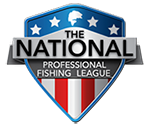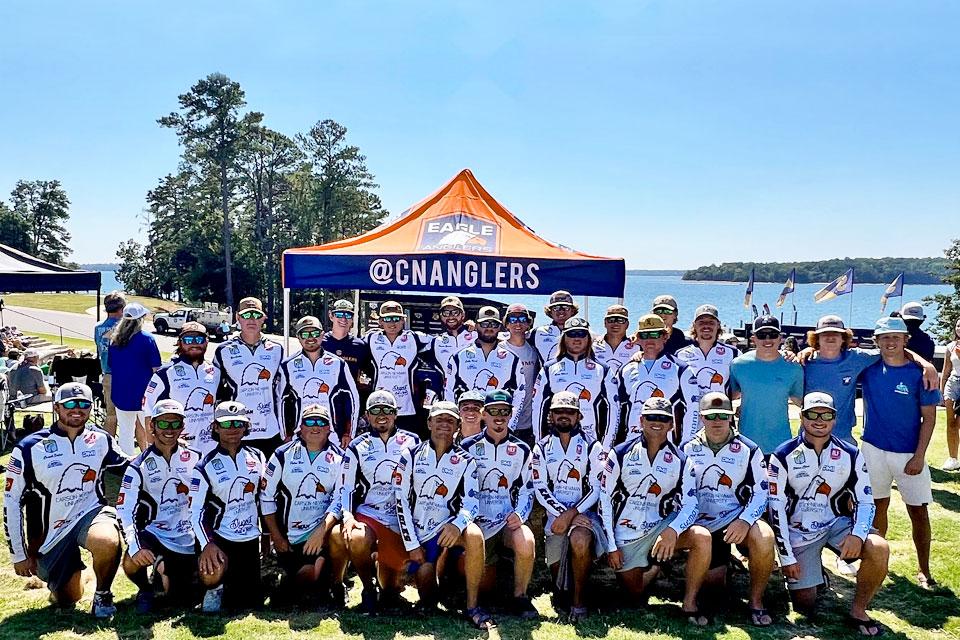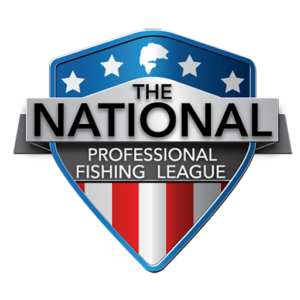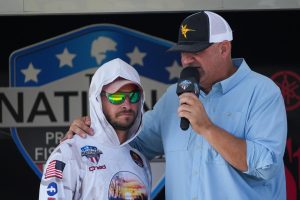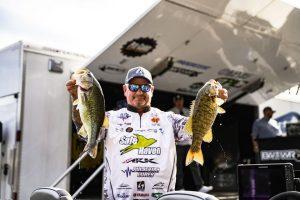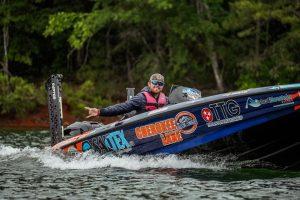Story by Hunter Sales
College fishing has seen an explosion in popularity over the past decade. What started as a few passionate students in aluminum boats fishing in tournaments averaging 50 boats at the national level has turned into an industry of its own.
The Association of Collegiate Anglers serves as a governing body of sorts while hosting tournaments and providing college fishing’s only all-encompassing team ranking system. Nearly 400 schools fielded a fishing team in the 2023-24 academic year, a number that has been steadily increasing. A majority of these teams are club programs, led by students at some of the premier state universities (Auburn, the University of Tennessee, and Alabama to name a few). However, there is an increasing number of teams that have hired full-time coaches, provided scholarship dollars, and invested in large budgets that allow their anglers an opportunity to travel across the country with relatively little personal cost.
College anglers typically have the opportunity to compete in about 15 events each year. That’s more than most top-level professionals will fish! It’s not uncommon for anglers to graduate college with enough experience to jump right into a top-level tournament series. Many choose to fish the Bassmaster Opens or Toyota Series upon graduation, and the NPFL becomes a more attractive option each year! These anglers have traveled across the country, networked with other passionate anglers and industry sponsors, and learned to balance their finances with limited income—skills that play a major role in producing high-talent anglers at a younger age than ever before.
Of course, college fishing is not the only path to becoming a professional angler. For someone who is self-driven, you can certainly graduate high school and start building your professional fishing résumé. Where college fishing really excels is by affording young anglers mentorship and guidance when building their personal brands and careers.


This leads to the story of why I started coaching the fishing team at Carson-Newman University. As a college baseball player with a passion for fishing, I found myself going into my senior season with a decision to make. Should I spend a fourth spring on the baseball diamond or hang up the cleats in favor of a rod and reel. I opted for the latter and quickly found myself deep into an industry that I knew little about.
I always had great grades, and I earned both a business management degree and an MBA in marketing, but learning the ins and outs of professional fishing proved to be one of my biggest challenges. It seems that the only thing that professional anglers were guarding tighter than their fishing holes or techniques was their knowledge of the industry and how to approach sponsors.
Looking back, I don’t blame anyone for not wanting to teach a college kid with a couple of semi-pro wins to his name the tips and tricks of approaching industry (and non-endemic) sponsors. There are so many anglers trying to break into professional fishing that it would water down the value of tools such as sponsor decks and social engagement metrics.
It was equally challenging to break into the social circle of the more accomplished anglers. It’s in these circles that hot techniques, new technology, and current patterns are shared without hesitation. If you’re outside the circle, you can forget about gaining access to this information.
As a college coach, I’m able to strategically recruit anglers that possess skillsets that our team lacks. This results in a diverse group of anglers, all with different talents and all respecting each other’s abilities. This allows for an incredible learning opportunity regardless of where you come from. A Florida angler can spend four years in college traveling with anglers from northern smallmouth waters and learn more than he could in decades on his own. Anglers that wish to pursue a professional career can find the guidance they need to approach sponsors and prepare themselves for a sustainable career. The result is a more experienced, more finished angler ready to tackle the fishing world.
We should all be proud of the youth fishing movement and the opportunities it’s providing!
Hunter Sales
NPFL Pro Angler
Follow Hunter @ Instagram – Facebook – YouTube

